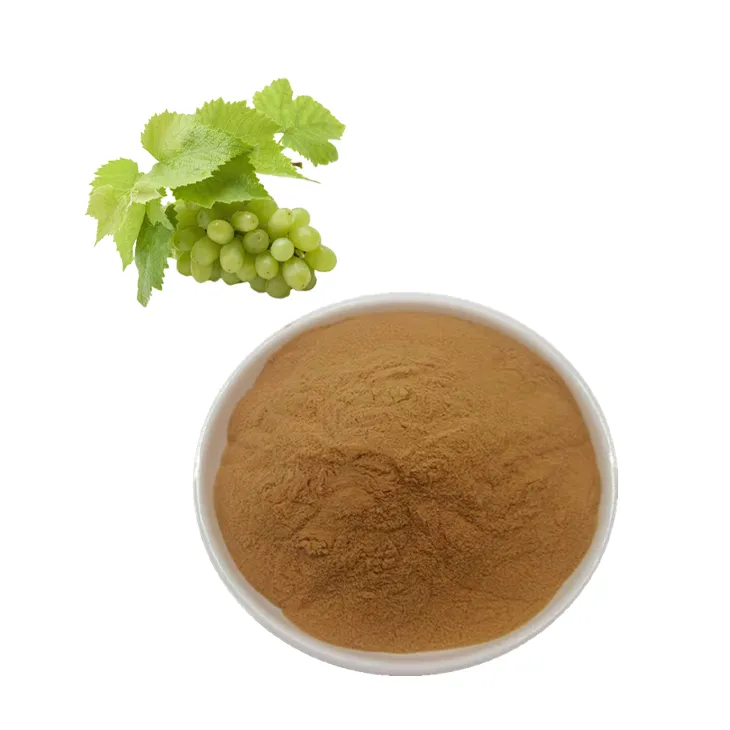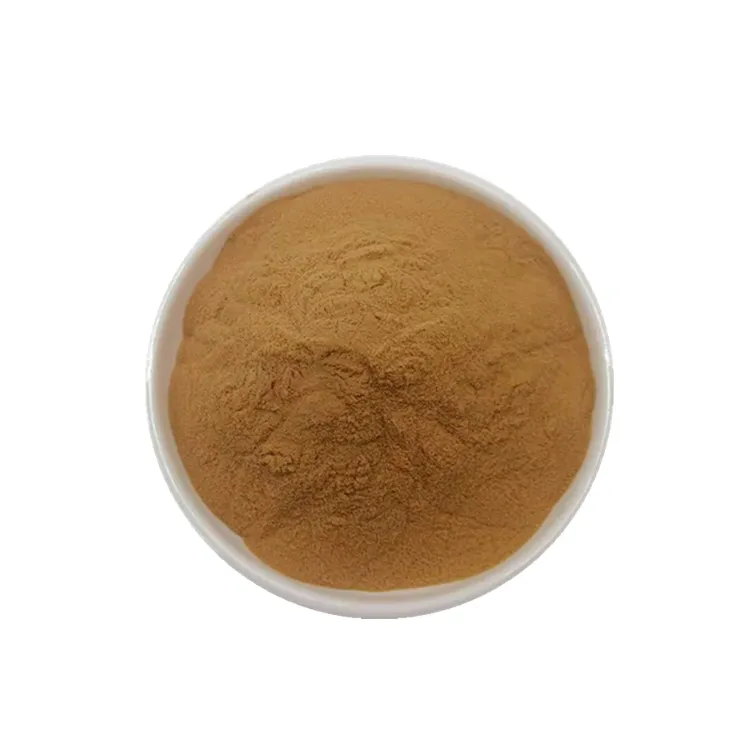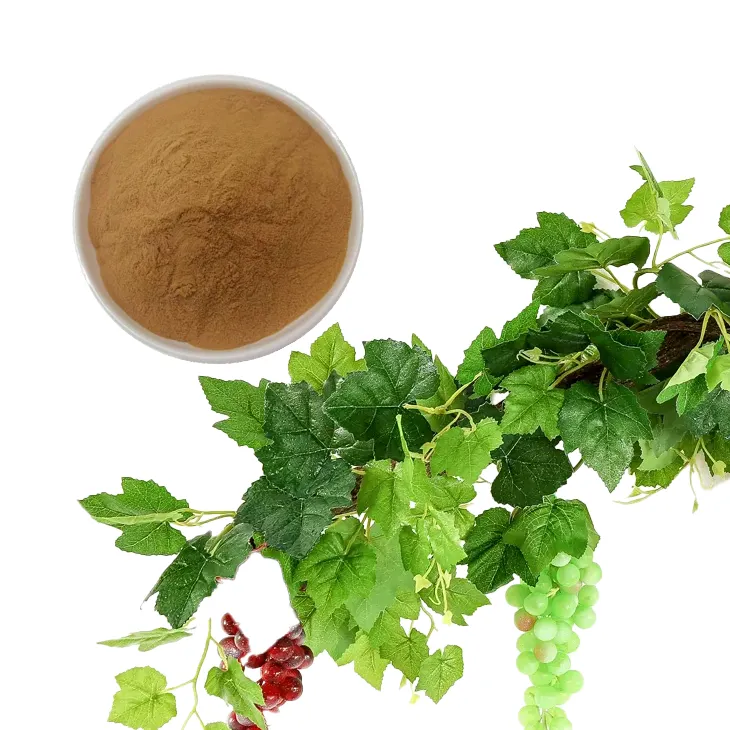- 0086-571-85302990
- sales@greenskybio.com
What is grape leaf extract used for?
2025-05-18

In the world of herbal medicine and natural remedies, grape leaves have long held a place of significance. While the fruit itself is celebrated for its antioxidant-rich properties, the leaves have equally captivating benefits. Grape Leaf Extract, derived from the leaves of the common grape vine, Vitis vinifera, has garnered attention for its potential health applications ranging from vascular and digestive support to antioxidant protection. In this article, we delve into the various uses and benefits of Grape Leaf Extract and explore why it is becoming a popular choice in both dietary supplements and medicinal formulations.
Introduction to Grape Leaf Extract
Grape leaves have been used in cooking and traditional healing practices for centuries, particularly in Mediterranean cultures. The leaves are known for their nutritional profile, containing vitamins such as A, C, and K and minerals including calcium and magnesium. The extract is typically prepared by harnessing these nutrients and bioactive compounds through various extraction methods, resulting in a concentrated form that can be easily incorporated into supplements or utilized in therapeutic applications.
Grape leaf extract is abundant in flavonoids, particularly Quercetin, kaempferol, and resveratrol, which contribute to its health-promoting attributes. These compounds provide antioxidant protection, combatting oxidative stress and inflammation while endorsing overall well-being.

Key Uses and Benefits of Grape Leaf Extract
1. Vascular Health and Circulation Support
One of the primary uses of grape leaf extract is its ability to support vascular health and enhance circulation. The flavonoids present in grape leaves are known to strengthen blood vessels, improving their elasticity and integrity. This action helps prevent conditions like chronic venous insufficiency (CVI), varicose veins, and edema (swelling due to fluid retention), particularly in the lower extremities.
In chronic venous insufficiency, the veins are unable to efficiently return blood to the heart, leading to symptoms such as pain, heaviness, and swelling in the legs. Studies have shown that grape leaf extract can alleviate these symptoms by enhancing venous tone, reducing capillary permeability, and supporting blood flow. Its vasoprotective properties make grape leaf extract a valuable supplement for individuals seeking to improve their overall circulatory function.
2. Anti-inflammatory and Antioxidant Effects
Grape leaf extract is rich in antioxidants, compounds that help neutralize free radicals, which are unstable molecules that can cause cellular damage and lead to inflammation. Oxidative stress and inflammation are linked to various chronic diseases, including cardiovascular disease, arthritis, and diabetes.
The flavonoids in grape leaf extract, such as Quercetin and resveratrol, exhibit potent anti-inflammatory and antioxidant activities. They help reduce the levels of pro-inflammatory cytokines while enhancing cellular defenses against oxidative stress. These properties contribute to lowering the risk of chronic diseases and supporting the body's natural healing processes.
3. Promotes Digestive Health
Grape leaf extract can also benefit digestive health by promoting better digestion and gut function. It is traditionally used to aid digestion due to its mild laxative properties, which help regulate bowel movements and relieve constipation. Moreover, grape leaves contain tannins, compounds that possess astringent qualities, which can support gastrointestinal health by reducing inflammation and intestinal permeability.
4. Supports Joint Health
The anti-inflammatory effects of grape leaf extract can extend to joint health, providing relief from pain and stiffness associated with arthritis and other inflammatory conditions affecting the joints. The extract’s ability to inhibit inflammatory pathways and reduce oxidative stress can help mitigate joint degeneration and improve mobility.
5. Potential Antimicrobial Activity
Early research suggests that grape leaf extract may possess antimicrobial properties, making it potentially effective in combating bacterial infections and promoting wound healing. The phenolic compounds in grape leaves, such as resveratrol, have demonstrated activity against certain bacteria and fungi, offering a natural alternative for supporting immune health.
6. Skin Health and Protection
Grape leaf extract may also offer benefits for skin health, attributed to its antioxidant content. By protecting against oxidative damage from environmental stressors like pollution and UV radiation, the extract can enhance skin vitality, maintaining its firmness and radiance. Flavonoids, along with vitamins and minerals in grape leaves, support collagen production and skin repair, potentially reducing the signs of aging, such as wrinkles and fine lines.

Incorporating Grape Leaf Extract into Your Regimen
Grape leaf extract is available in various forms, including capsules, tinctures, and powders, which can be easily incorporated into daily health routines. Selecting a high-quality product from reputable sources ensures optimal potency and safety. It's essential to follow dosage recommendations based on individual needs and consult with healthcare professionals, especially if combined with other treatments or medications.

Potential Side Effects and Considerations
While grape leaf extract is generally considered safe, some individuals may experience mild gastrointestinal effects, such as upset stomach or diarrhea, especially with excessive consumption. As with any supplement, those with pre-existing conditions, pregnant or lactating women, and individuals on medication should consult their healthcare provider before incorporating grape leaf extract into their regimen.
Conclusion
Grape leaf extract represents a promising natural remedy with a range of potential health benefits, from supporting vascular health and circulation to enhancing digestion and protecting against oxidative stress. Its anti-inflammatory and antioxidant properties make it a versatile addition to health and wellness practices. As interest in natural remedies continues to grow, grape leaf extract offers an exciting avenue for exploring holistic health solutions.
By understanding its uses and benefits, consumers can make informed decisions about integrating grape leaf extract into their health routines, leveraging its properties to improve overall well-being and quality of life.
- ▶ Hesperidin
- ▶ Citrus Bioflavonoids
- ▶ Plant Extract
- ▶ lycopene
- ▶ Diosmin
- ▶ Grape seed extract
- ▶ Sea buckthorn Juice Powder
- ▶ Fruit Juice Powder
- ▶ Hops Extract
- ▶ Artichoke Extract
- ▶ Mushroom extract
- ▶ Astaxanthin
- ▶ Green Tea Extract
- ▶ Curcumin
- ▶ Horse Chestnut Extract
- ▶ Other Product
- ▶ Boswellia Serrata Extract
- ▶ Resveratrol
- ▶ Marigold Extract
- ▶ Grape Leaf Extract
- ▶ New Product
- ▶ Aminolevulinic acid
- ▶ Cranberry Extract
- ▶ Red Yeast Rice
- ▶ Red Wine Extract
-
Centella Asiatica Extract
2025-05-18
-
Cat Claw Extract
2025-05-18
-
Nutmeg Extract
2025-05-18
-
Berberis aristata Extract
2025-05-18
-
Longan Extract
2025-05-18
-
Green Tea Extract
2025-05-18
-
Bayberry Extract
2025-05-18
-
Sea buckthorn Juice Powder
2025-05-18
-
Europen Bilberry Extract
2025-05-18
-
Withania Somnifera Extract
2025-05-18





















